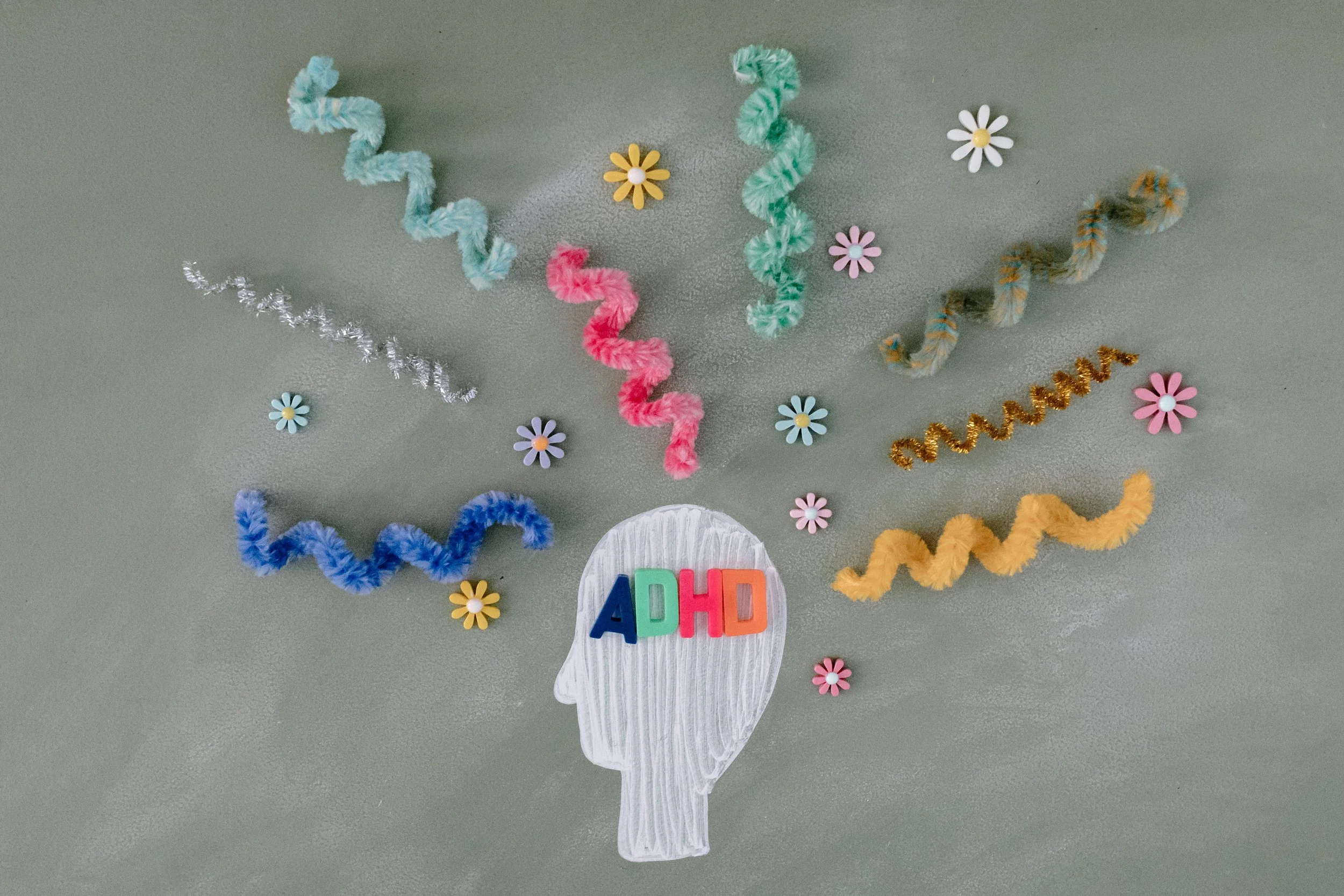Speaking from the Heart:How to Deal with ADHD Symptoms and Ways to Get Organized.
Living with ADHD (Attention Deficit Hyperactivity Disorder) can be overwhelming. Simple tasks, such as keeping track of time, staying focused on a work project, or completing household chores, can quickly spiral into frustration. But here's the good news: with the right tools, structure, and support, it's possible to manage ADHD symptoms and live a more balanced, organised life.
This article outlines simple, research-supported ways to manage symptoms and stay organised, strategies that work in real life, not just in theory
Key Symptoms of ADHD You Should Know
ADHD affects how the brain regulates attention, emotions, and impulses. It's not just a childhood disorder; many adults struggle with ADHD, often without knowing it.
Common symptoms include:
Difficulty focusing or paying attention
Trouble starting or finishing tasks
Forgetfulness and disorganisation
Impulsivity or restlessness
Mood swings or feeling overwhelmed easily
Poor time management (also known as "time blindness")
While symptoms vary, the impact can be significant, affecting relationships, productivity, and emotional well-being.
You're Not Alone—Here's What Studies Reveal
According to a National Institute of Mental Health (NIMH) study, approximately 4.4% of U.S. adults have ADHD. Many go undiagnosed or misunderstood, leading to years of avoidable stress. But understanding that ADHD is a neurological condition—not a personal failure—can bring a sense of relief and is the first step toward effective management.
How to Deal with ADHD Symptoms?
Managing ADHD is about creating an environment and routine that supports your brain's needs. Here are therapist-recommended methods that help:
1. Break Big Tasks into Smaller Steps
It is challenging to initiate large or indistinct tasks. Divide them into small and precise actions. In place of cleaning the house, write tasks such as washing dishes, vacuuming the living room, and folding laundry.
2. Use Visual Reminders
Visual calendars, sticky notes, and whiteboards are ADHD-friendly. Staying visible reduces the problem of forgetting and keeps your to-do list always before your eyes so literally.
3. Create a Simple Routine
ADHD brains live off the structure. Attempt a walk in the morning and pass the night. Set a small donation: create a daily alarm that reminds you to check your calendar or a list of essential items to take with you when leaving the house.
4. Use Timers to Stay on Track
Problems with time? Set time limits for specific tasks (approximately 20- or 30-minute chunks). One of the practical approaches is the Pomodoro Technique, which involves 25 minutes of concentrated work followed by a 5-minute break.
5. Practice Mindfulness or Deep Breathing
Mindfulness helps reduce impulsivity and emotional reactivity. Even five minutes of focused breathing or guided meditation a day can help you feel more grounded and centred.
Ways to Get Organized with ADHD
Organisation doesn't have to mean perfection. It's about creating systems that support your brain, not frustrate it. Here's how:
1. Declutter One Spot at a Time
say a drawer, a shelf or even a desk, and empty it. Any small victory should be celebrated.
2. Use Digital Tools or Apps
Calendar apps or to-do list applications, such as Todoist, and visual planning tools like Trello can assist you in staying organised and provide reminders. Choose one approach that is not intimidating.
3. Create a "Drop Zone"
One spot on or by your front door should always be used to store necessities (keys, wallet, charger, etc., essential papers). However, this minimises last-minute rush and develops regular routines.
4. Batch Tasks Together
Instead of changing tasks every 20 minutes, group similar tasks, such as paying bills, answering emails, or running errands, together. By batching, time is saved on decision fatigue, and it helps you stay focused.
5. Use the Two-Minute Rule
Do it immediately, provided it can be done in under two minutes. Answer a short message, wash a plate, or drop junk mail, whatever it is, it leaves one task at a time. Disorder can also add extra anxiety and additional difficulties in concentration. Pick a little spot,
When to Seek Professional Support
Therapy can assist in case you think that symptoms of ADHD are dictating your life. Our licensed therapists at Hearts to Healing Therapy provide 1-on-1 ADHD support based on evidence-based methods such as mindfulness, cognitive-behavioural therapy (CBT), and executive functioning.
Our advice is not one-size-fits-all. We collaborate with you to create tools and systems that meet your specific needs, whether you're an overwhelmed parent, working professional, or college student.
Parting Thoughts:
You do not need to deal with ADHD on your own or ideally. With the right tools and strategies, it is possible to reduce stress, improve attention, and create the life you desire. This journey is about empowerment and taking control of your life with a few deliberate modifications.
Keep in mind: ADHD does not imply that you are a wreck. It means that your brain functions differently, and once you realise that, you can begin using it, not fighting it.
Start Your Journey with Support That Understands
If you're ready to manage your ADHD symptoms with confidence and build real organisation in your life, contact Hearts to Healing Therapy. We're here to help you focus, flourish, and heal—with tools that fit your mind.



